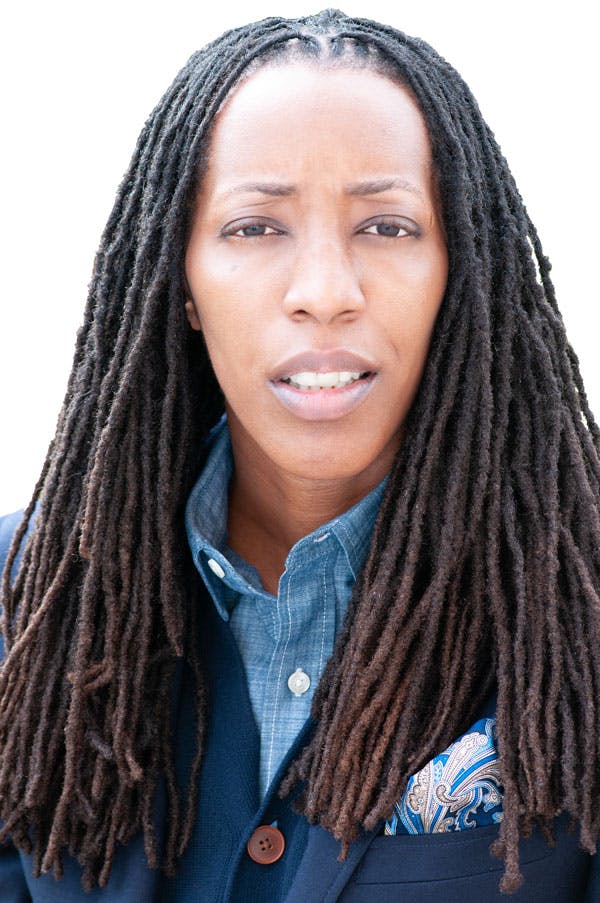Bettina Love, an associate professor in the UGA Mary Frances Early College of Education’s department of educational theory and practice, was recently appointed to serve on the Old Fourth Ward Economic Security Task Force.
Atlanta’s Old Fourth Ward neighborhood, the birthplace of Martin Luther King Jr. and home to Ebenezer Baptist Church, is a neighborhood steeped in social justice advocacy. Today, it is economically diverse and includes residents who face some of the greatest economic challenges in the area.

“I was very honored to be appointed to the Task Force, and I was even more honored to be appointed because they knew who I am as a person,” said Love. “They know I’m an abolitionist. They know I’m about looking at structures and trying to unroot them. I was happy to be appointed to the committee because that showed me they wanted to be bold and to do things differently.”
As a member of the Task Force, Love will use her expertise in K-12 education to lend an educational perspective to the committee’s framework and solutions. The goal of the Task Force is to advance dialogue and tangible solutions toward guaranteed income and the Earned Income Tax Credit, the largest antipoverty program in the United States, while examining the future of workers.
“I really want us to think about what type of changes we can make in education that can really impact the wealth gap,” said Love. “This is the first Task Force to my knowledge that’s not tiptoeing around the issues and is trying to ask big questions about the racial disparities of Black and Brown folks in Atlanta, particularly in the Old Fourth Ward, and addressing those income and wealth disparities.”
Members of the Task Force are appointed by District 2 Council member Amir Farokhi. Together, they seek to reframe how Southern cities and states address economic insecurity by thoughtfully examining and re-imagining immediate and long-term solutions, as well as building a framework for implementing those solutions.
With the help of donors and philanthropists, Love and the other members of the committee hope to introduce a basic income program similar to those piloted in Jackson, Mississippi, and Stockton, California. These projects—which offer no-strings-attached cash payments to low-income households—not only help people meet their basic needs, but also provide monthly opportunities for community members to connect with each other and receive leadership training.
“This is about ideas of justice and of giving folks who are so deserving and are, at no fault of their own, in situations that much of this country has created,” said Love. “It’s time to do something bold, and it’s time to try to put actual money in the hands of these individual who the system has failed.”
Next month, Love is launching a nonprofit organization called Abolitionist Teaching Network. The network’s mission is to develop and support educators fighting injustice in their schools and communities. Love’s latest book, “We Want to Do More Than Survive: Abolitionist Teaching and the Pursuit of Educational Freedom,” draws on her life’s work of teaching and researching in urban schools.
“This is about linking race and economics together like it always is,” said Love. “You cannot have conversations around race and not have conversations around economics. We typically try to do something, but not at those intersections. I’m excited that the work is bold. While I’m very hopeful, I’m also realistic about how hard it is to get this initiative off the ground, but like Nelson Mandela said, ‘It always seems impossible until it’s done.’”